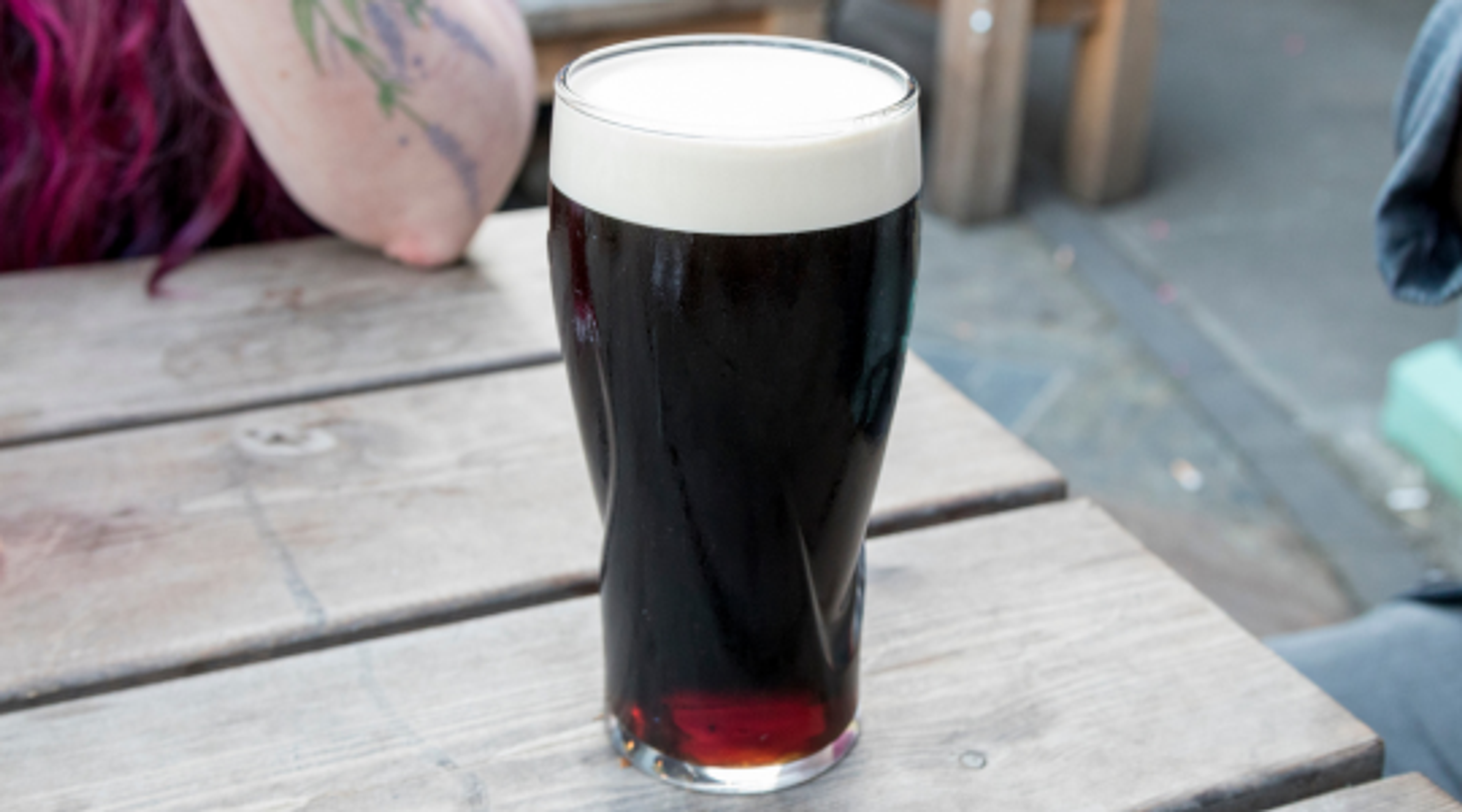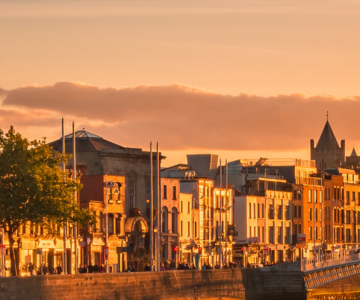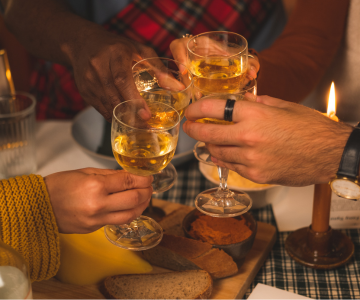
What’s On in London: February 2026 | A Guide for International Students
British winter might be dark and drizzly, but things are finally looking up.
Evie Lucas
What’s the craic?
What’s the what? we hear you ask.
Don’t fret: this simple Irish greeting roughly translates to ‘How are you?’ or ‘what’s the latest?’. If you ever visit Ireland, you’ll hear this phrase a lot – and we mean a lot.
The ubiquity of English makes it one of the most useful languages to learn in the world, but it also means you’ll encounter hundreds of varieties that may sometimes leave you baffled.
In this blog series, we’ll explore different dialects of English around the world – from American English to Scottish slang – to curb your confusion.
Nowadays, 99% of Ireland speaks English (or the Irish dialect, Hiberno-English) as their first language. But this wasn’t always the case: up until the 19th century, Irish Gaelic was still the country’s major language.
While not many Irish people speak Irish now (although the emphasis on Irish education is changing this), Irish English has its own peculiarities.
So, here are 10 essential words and phrases from the Emerald Isle that will help you survive your next trip!

But what is ‘Craic’? The answer to this question could easily fill an entire article – or even a book, and many have written one. But we only have a short paragraph, so here goes:
This versatile word comes from the Old English ‘crak’, referring to a loud conversation, or the act of bragging. Later in the mid-20th century, ‘crak’ became ‘craic’, evolving to signify fun or a lively atmosphere. These days, ‘craic’ has become a symbol for Irish culture itself, capturing the nation’s love of a good time.
In a sentence:
‘It was great craic’ = it was a lot of fun
‘What’s the craic?’ = How are you? Have any stories?
Don’t confuse this with the northern English slang, which means ‘great’. In standard English, ‘grand’ refers to something large and impressive, but in Irish English, ‘grand’ means simply ‘okay’ or ‘acceptable’.
In a sentence:
‘That’s grand’ = That’s ok/good
‘I’m grand, thanks’ = I’m ok, thank you
‘Don’t worry, you’re grand’ = Don’t worry, you’re ok

If something is ‘gas’ in Ireland, it’s funny. Some have speculated that the word might be connected to laughing gas, a sedative that creates a state of euphoria. The word was first cited by the Oxford English Dictionary in Dubliners, a collection of short stories by Ireland’s legendary writer, James Joyce.
In a sentence:
‘She’s gas!’ = she’s fun/funny
‘That’s gas’ = that’s fun/funny
‘Deadly’, ‘fierce’, ‘class’: these creative adjectives all refer to something excellent.
In a sentence:
‘He’s class’ = He’s really cool
‘Your top is class’ = I like your top
‘That movie was deadly’ = That movie was very good
In Ireland, you might hear that someone is ‘after’ doing something. The phrase comes from the Irish construction ‘tar éis’, which means ‘after’ and refers to someone who has ‘just’ done something.
In a sentence:
‘I’m only after cleaning the kitchen’ = I’ve only just cleaned the kitchen
‘I’m after seeing a friend’ = ‘I’ve just seen a friend’

Another English phrase with Irish influence is ‘giving out’, meaning to tell someone off, complain, or rant about something. The phrase originates from the Irish ‘tabhair amach’, which translates to ‘to scold.’
In a sentence:
‘He’s always giving out’ = He’s always complaining
‘You’re always giving out at him’ = You’re always scolding him

If you hadn’t already guessed, the ‘black stuff’ refers to the dark colour of Ireland’s most beloved drink, Guinness – so beloved that it was the most favourited Irish phrase in an online questionnaire.
In a sentence:
‘I’ll have a pint of the black stuff’ = I’ll have a pint of Guinness
Similar to the English phrase, ‘pulling someone’s leg’, to ‘cod’ is to joke around or to fool someone.
In a sentence:
‘Are you codding me?’ = Are you joking me?
‘I’m only codding’ = I’m only joking
The term culchie refers to someone from rural Ireland. Careful with this phrase, though: while it can be a form of rural pride, it can also be used in a derogatory way to suggest that somebody is unsophisticated or simple.
There are several possible explanations for the word’s origins. Some have suggested it derives from the Irish ‘cúl an tí’, which translates to ‘back of the house’, referring to the practice of entering from the back of the house in rural areas to avoid getting dirt on the floor. Another potential origin might be the word ‘coillte’, meaning woods or forests in Irish. Ireland even has an annual ‘Culchie Festival’ that began in 1989 and ran up until 2012. Challenges included tractor racing, sandwich making, potato picking, knitting, and karaoke.
In a sentence:
‘They say things like that because they’re a culchie, but they hate being called that’

If you hear this phrase, you’re in for a good story. ‘Come here till I tell you’, more often pronounced ‘c’mere till I tell ya’, is a way of announcing that you’re about to share some gossip. You might also hear the shortened version, ‘c’mere to me’.
In a sentence:
‘C’mere till I tell ya what happened last night!’ = Let me tell you what happened last night!
Now that you know the difference between ‘gas’ and ‘grand’, why not practise your new knowledge in Ireland’s capital, Dublin?
Our courses in Dublin’s historic centre are designed with immersion in mind. Our students benefit from a blend of excellent classroom teaching and cultural excursions to some of the most exciting places in Ireland. Click here for more information about our Dublin English Centre.

British winter might be dark and drizzly, but things are finally looking up.

Irish Winter might be dark and drizzly, but things are finally looking up.

Studying English in London?
We use technology on our website to personalize content, customize and measure advertising, and analyze website traffic. By clicking OK, you agree to the use of these technologies in their entirety.
Learn more in our Privacy Policy.